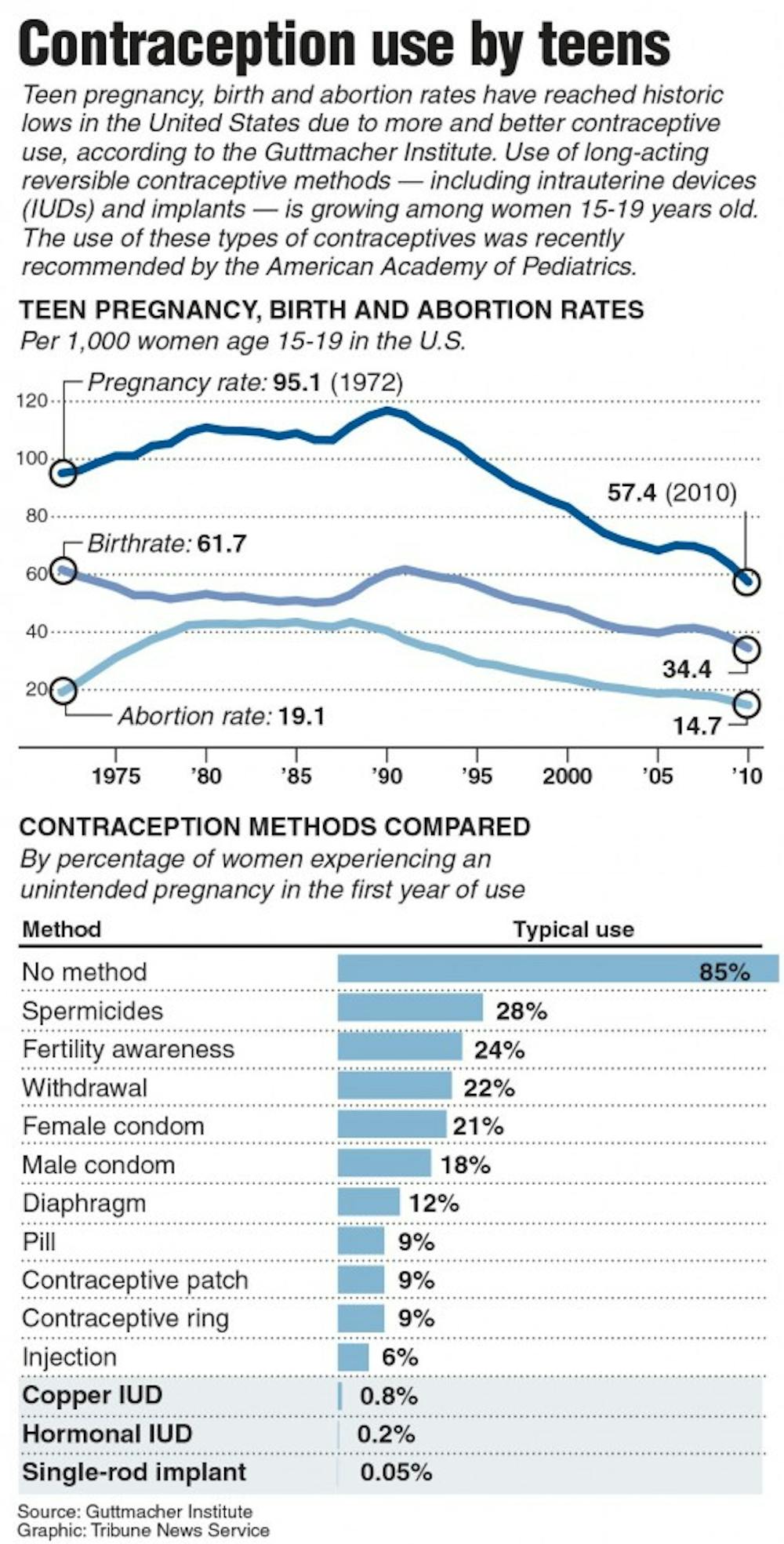The health care reform movement in recent years has sparked renewed discussion about the arguably most important subject for young women in the United States: birth control.
A typical young woman in the U.S.
The U.S.
Affordability is not the only consideration when it comes to women acquiring contraception. It must also become more accessible, particularly to teenagers and young adults.
Sexually active teenagers are more likely to use birth control as it becomes more accessible, which has caused a steady decrease in teen pregnancies over the past several years. A pilot program in Colorado provided free birth control pills and IUDs to women who wanted them. As a result, over four years, the teen
It is undeniable that easy access to effective contraception reduces the rate of unwanted pregnancies. The next step to accessibility is to make these methods available without a prescription.
Several states, including California and Oregon, are taking steps toward this goal. In early July, Oregon governor Kate Brown signed two laws, the first of which allows women to get birth control pills from a pharmacist without a prescription. The second allows women to obtain a year’s supply of pills at a time, instead of the typical 30- or 90-day supply. The latter is particularly aimed at women who do not have regular access to their doctor, such as college students.
The issue still remains that insurance companies require a prescription in order to cover the cost of birth control. Most of the women who would have trouble getting a prescription are young, immigrant, or low-income women who cannot easily afford to pay out-of-pocket.
Teenagers are another group that might not have access to effective contraceptives. In South Carolina, the legal age of sexual consent is 16 years old. Many 16-year-old girls might not be comfortable enough or able to get a prescription for birth control. An over-the-counter pill would be much more effective at preventing pregnancy than other methods, such as condoms and spermicides, to which teenagers currently have easier access.
Fully covered, over-the-counter birth control pills are the solution. For insurance companies, as well as women, the cost of pills would be much less than the cost of a pregnancy.
Birth control is meant to prevent unwanted pregnancy. Making contraception affordable and accessible allows it to fulfill its purpose.

